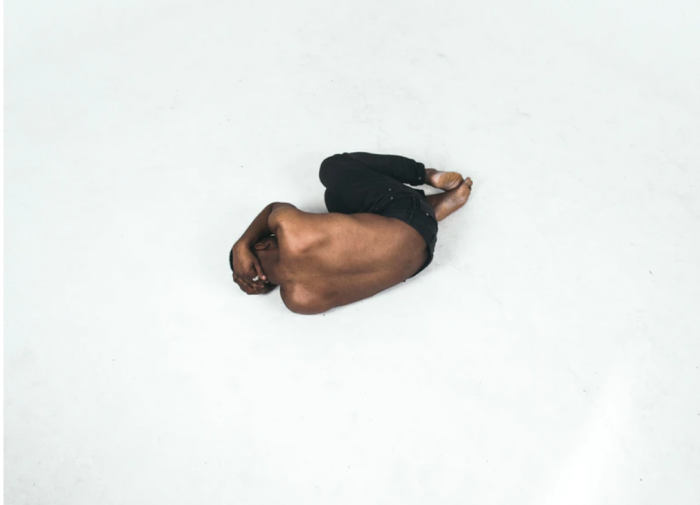My class had just finished, and I was on my way to the bus stop when I saw my mom.
Her eyes were red, she was shaking, and the look she gave me was harrowing. What was going on?
My walk from the entrance door to her was so short—I think I never had time to think about what could have happened. What would send my mom all the way to my faculty?
Then she said the words. My friend had been murdered. It was 4:13 p.m., on August 23rd, 2018, when my life was no longer the same. My best friend was dead and suffered a violent death.
Since then, my heart’s been stuck in time, my life’s been sadder, and I’m only covered in shadows. The sun keeps coming up every day, but for me, there’s no more light in it.
When my mom uttered those words, it meant so much more to me—it meant my life with my best friend was over, too. It was the end of a time full of songs, costumes, dances, inside jokes, fights, games, and running away—the end of our time together.
I don’t want to hear “I’m sorry,” or “You’ll get over it.”
It doesn’t work this way; plus it’s a lie.
No, you’re not sorry for my loss because you didn’t do anything, and I’m not getting over it because a terrible thing has the same impact as a wonderful one. But we don’t tell people to get over their child’s birth or their wedding anniversary, do we?
We don’t tell them to get over any of their achievements the same way we don’t get over a tragedy. Because we learn to move on, even though we are struck. Love encompasses our hearts and our minds, and once that part of love is gone, we’re never the same again.
We all tend to believe every action is inevitable, but now I wonder, is it, really? We make choices, we make a plan, set a path, but even though we think we did everything according to the book, why are we so sure that life isn’t going to come and destroy everything to ashes?
We should know better—it happens. We fill ourselves with projects and schedules thinking that if we push death away just a little bit longer, that death might eventually give up.
It doesn’t work that way—we’re all dying at the end.
When a murder happens, we think it’s rare, but it’s not. It’s way more common than we want to admit.
My point right now is not to criticize society, but to let everyone know that we should stop being all petty and think that tragedy won’t knock at our door. It will, but it won’t knock actually. Tragedy will take the whole door down after a single blow.
Our life will change, and we might as well hate it. It might be an accident, a disease, or even something less deadly, like a breakup or a separation. As Mary Shelley said:
“Nothing is so painful to the human mind as a great and sudden change.”
When someone we love dies, a hole is carved in our hearts, a new weight lies on our shoulders, and there’s a warm touch that we’ll forever miss.
It is true that our friends will die, but their love remains within us, and it is always good to remember how that love left us and how beautiful it was while it lasted—although that fissure in our hearts is our reminder that it’s over.
The important thing is that love happened to us, and after that, no one stays the same.
We might not get over it. How can we when we still dream about it? When every day we wish things came out differently and wish we had our friend by our side to listen to our jokes? Then we realize that our friend won’t be here anymore.
It hurts as if we heard the news for the first time.
I still make plans with her; I see her at my graduation, at my next birthday party, on New Year’s. I can imagine her complaining about this whole pandemic thing; I do. Then I wake up, and I have to go through another day without her.
Some days it hurts more, others it hurts less. Then I remember she was not my only friend; I have more friends to talk to, more people to share my grief with, more people with whom I can walk, facemask, and talk about everyday life and the deepest topics ever, like death and depression.
We shouldn’t be scared of those words. Tragedy is a real thing, and it happens. We shouldn’t nudge it away or resent it just because we don’t like what it means.
When in pain, we don’t want to hear “I’m sorry.” Instead, we want a hug, a shoulder to cry on, someone to hold our hand, and listen to us while we’re sad.
Love is not about having to say all the right words at the right time. Love is being there when you need it the most. Tell that to people—don’t be afraid of saying that you’re grieving. We all are grieving in a way or another, only that most people are too proud or too scared to admit it. I get it, but let’s be better. Change has to come from within before it can reach the outskirts.
For what it’s worth, it all matters in the end. True love is always alive.
Hold each other more, at least with the ones you don’t have to social distance.
Listen to each other more, read between the lines, and don’t be shy of acknowledging the ones you don’t have physically by your side anymore.
You still love them, that’s why it hurts. Picture them in your most treasured memory.
I’ll always see my friend and I dancing together on the sidewalk. Too much heat, too much noise, the fireworks are on, a new year begins, she’s smiling, and oh, that smile. It’s now frozen in my memory, and it will always help me find the sun in the darkest of days.
Pain is part of everyday life, hence, it goes on forever.
We have to live with it.
Take a look around, and look the people you love in the eyes—it’s never a bad time to do that.
~


 Share on bsky
Share on bsky





Read 3 comments and reply